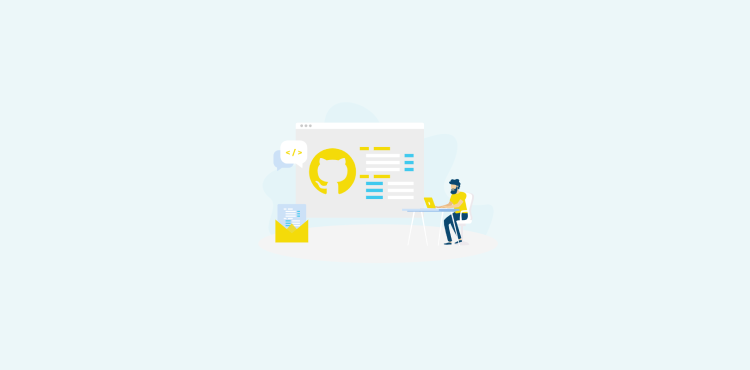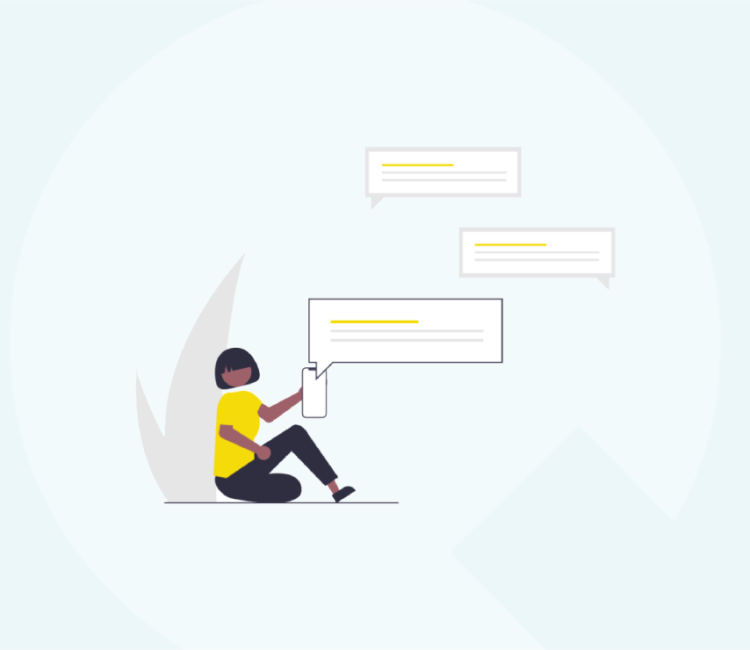For at least the next generation of employees, 2020 will be known as the year when the world of work changed. Luckily, chatbots for HR can help you tackle the challenges of the new normal.
Undoubtedly, one of the things COVID-19 has affected heavily is Human Resources (HR). Everything from hiring to firing, and everything in-between, is entirely different now.
From the lack of physical contact to the growth of remote workplaces, jobs and companies have been affected worldwide.
However, the rise of no-code tools made all the changes more manageable. One of those no-code “miracles” turned out to be, surprisingly, chatbots.
Being easy and quick to build, they opened a new well of possibilities.
This article will look at how chatbots for HR can help you and your company operate better in the new normal.
Taking the pressure off
The Coronavirus situation is extremely fluid, with rules and regulations changing daily. It’s all nearly impossible for the average person to follow along unless they constantly watch the news, which many don’t do.
Changes in the situation understandably trickle down the employee ladder. However, it’s paramount to inform all employees regularly and promptly.

In this context, you can leverage chatbots to answer routine questions about the company, its future, remote work culture and regulations, social distancing rules, etc.
It can also help take the pressure off by sending daily reminder notifications about measures to take. For example, you can program a chatbot to send a daily web or mobile message to employees to remind them to wear their masks. And you wonder how the text annotation and quality data training of the model provides the result.
Even better, if you know where they live and their work schedule, you can set the reminder to run a few minutes before they are supposed to leave their house!
It could mean an employee won’t miss any work hours because they forgot an essential piece of protective equipment. Of course, having some additional masks at the office won’t hurt, but the thoughtfulness of the process counts too.
Additionally, you can send regular reminders to sanitise hands, clean surfaces, etc. In this way, employees can keep in line with all of the required precautions, thereby avoiding legal consequences or fines.
Providing financial and emotional support
A large element of HR is providing emotional and personal support to employees when required.
Chatbots can be useful in this scenario, as well. However, you must be careful. Expectedly, and unsurprisingly, talking to a chatbot isn’t going to help someone with serious issues. On the contrary, it will likely annoy them.
Therefore, always ensure the bot has the option to easily book an appointment with a member of the HR team. Or, call them immediately if it’s an urgent matter. The last thing you want is an emotionally distressed or disgruntled employee.
For example, grief or burnout is best handled on a one-on-one basis. Still, a bot can remind employees how to take care of their wellbeing, recognise symptoms or provide guides to solve day-to-day conflicts.
Financial support
Unfortunately, one of the most significant issues COVID has bought with it is financial instability.
While you may be paying your employees a fair wage, it doesn’t mean they weren’t affected in other areas.
For example, their partner might have become unemployed, or their expenses might have increased dramatically. Either way, an employee who is having issues at home isn’t going to perform well at work.
A chatbot for HR can help pinpoint the cause and develop solutions or services to help them out.
As mentioned above, this matter requires your attention. It’s highly personal and could cause distress – especially if your employees believe they are underpaid or undervalued.
For example, the HR department could put together a list of financial aid services and offer help with the application process. The bot can offer 24/7 support regarding the rules and workings of governmental subsidiaries for which your company is eligible. Or, it could be all about simple advice on how to shop smarter and cheaper.
Emotional support
Alongside the financial strains, the coronavirus has taken a mental toll on a lot of people.
One aspect could be the aforementioned financial troubles. However, confinements also caused many to feel lonely, helpless, and even depressed. Depending on their location and regulations, they might even have fewer opportunities to go for a walk, exercise, or, if they live alone, have any social contact for days.
One way to use a chatbot for HR is to send regular supportive messages and helpful advice to nurture employee wellbeing.
Although, as with all points mentioned above, these steps are often not enough for troubled individuals, and personnel should be available to handle situations – if possible – in person.
The bot can serve as an opening, an act of reaching out, showing you are listening. It will also help you collect important data about your employees and help them before the problem occurs.
For instance, if your office is running at 50% capacity, the bot can collect information about your employees’ home working situations and help you prioritise people who live alone or those living in noisy conditions.
Additionally, you can use a chatbot to arrange small team building activities, sports, or meetups employees can attend in their free time.
A chatbot can help out with all of this. It can even help determine what a person likes and allow you to send them a little gift to aid them through these difficult times. Of course, this does come with some additional costs for the company. However, a happy employee is a productive employee.

Image: Pexels
Improving hiring, onboarding, and training
Creating a chatbot can significantly help in the new normal by improving hiring and onboarding, and training.
Hiring
Hiring is a complicated process for job seekers. It’s even more complicated for employers. The list of tasks goes from sifting through thousands of applicants, coordinating with relevant team members as the applicants go through the interview phase, testing to eventually finding the perfect candidate, and starting the paperwork.
Many companies are now doing video interviews and additional rounds to get a better feel for the candidates due to restrictions.
A chatbot can help keep track of schedules, allocate interview slots, and filter employees based on set criteria. However, the latter is something you should be careful with as you don’t want to filter out the perfect candidate without interviewing them accidentally.
Better yet, chatbots propose a great way of testing or delivering technical challenges, demos, and more. They deliver what’s needed as well as answer any questions the applicant may have about their task.
The system can then send automated emails to let candidates know about their application status, sparing you many emails and phone calls. Though getting rejected is disappointing, a rejection notification is still highly valued by job applicants.
Onboarding & training
As with hiring, how chatbots can help with onboarding and training.
One of the areas we previously touched upon is the ability to schedule meetings. During training, and especially onboarding, there are plenty of meetings to be had with multiple employees throughout the company. A well-designed chatbot can take care of this without anyone in the HR department having to raise a finger.
Besides that, a chatbot for HR can be a great assistant to the recruits when learning about company values, daily workflows, responsibilities, and the rules and regulations of the physical office.
However, the greatest advantage of using a chatbot throughout the training and introductions is removing embarrassment or other uncomfortable emotions from the process.
Naturally, starting a new job can be quite stressful. The recruit must absorb a lot of information in a very short time. Hence, sometimes, one can forget things.
Having a chatbot at their disposal allows them to ask the same question twice or ask what they might perceive as a “stupid” or “uncomfortable” question without adding to their stress.
Furthermore, it can assist existing employees by sharing information on available courses and workshops as well as help you find out how much interest there is in training opportunities.
Collecting feedback
Last but not least, chatbots for HR use are marvellous feedback collectors.
Collecting quantitative and qualitative data on employee satisfaction and performance is essential to improving talent retention and maintaining positive company culture.
The usual way to go about it would be, of course, surveys. However, most surveys stay unanswered because who has the time?
Once again, chatbots can sweep in and save the day.
Gathering feedback as a way of conversation feels more like a natural extension of daily tasks rather than extra work. It also entices employees to be more personal than when filling in an online feedback form. Furthermore, you can train your bots to look out for specific keywords throughout the conversation. That way, they can pursue topics of interest when the employee mentions them.
Other than that, we have also used chatbots as means of gathering questions before company meetings. We realised not everyone is comfortable speaking up in front of thirty or more people. Offering a safe and anonymous way to submit questions removed a significant bottleneck from our internal communication.
In Summary
All in all, coronavirus has brought with it many unfortunate side-effects. However, many companies continue to flourish through it.
With some innovative tech solutions such as chatbots and empathy towards your employees, you can ensure your employees stay happy and well informed!
About the Author
Esther Valiente is an HR Manager at Landbot with a keen eye for talent and a knack for creating a warm and caring company culture. She is passionate about the recruitment industry and always curious about new working trends.



